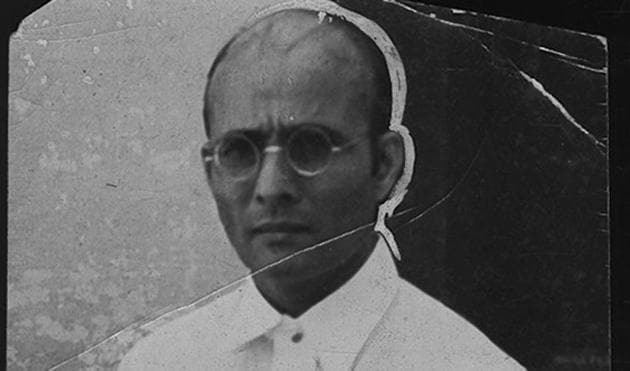Gandhi and Savarkar’s Bharat Ratna
There is a Savarkar who deserves it. There is a Savarkar on whom it will sit deeply troubled
Will Vinayak Damodar Savarkar be decorated, posthumously, with the Bharat Ratna? Very likely, yes. Everything about our times points to that.

Should he be?
Let us pose that question to Gandhi, Mohandas Karamchand Gandhi.
How can he address it ? He is dead, is he not?
Yes, so he is, but not so his written words. Those are very much alive. And they speak like he is speaking them today, now. And they will help us see if the Bharat Ratna will rest well on Savarkar, or not.
Gandhi wrote in Young India, on May 26, 1920, almost 100 years ago, a short piece on “political offenders” who had received, at that point of time, the benefit of a royal clemency. Noting that this act of grace had not been extended across the board, he singled out the case of two who remained unreleased: Ganesh Damodar Savarkar, and his younger brother, Vinayak Damodar Savarkar. A violent temper or the fear of violent acts by them was said to be the reason.
Gandhi had come to know the two brothers; the younger one from way back in 1909 when the two had met in London. Saying Ganesh Savarkar had “done no violence”, Gandhi turned to the case of the brother and gave what is, in effect, a biographical cameo of the younger Savarkar. Gandhi highlighted the episode of Savarkar’s dramatic and daring escape, while being transported to India, under the Fugitive Offenders’ Act, from a boat off Marseilles, in July 1910. An excerpt from Gandhi’s 1920 description of Vinayak Damodar Savarkar : “The brother was born in 1884, and is better known for his career in London. His sensational attempt to escape the custody of the police and his jumping through a porthole in French waters are still fresh in the public mind. He was educated at Fergusson College, finished off in London and became a barrister. He is the author of the proscribed history of the Sepoy Revolt of 1857. He was tried in 1910, and received the same sentence as his brother on 24 December 1910. He was charged also in 1911 with abetment of murder. No act of violence was proved against him either.”
True to his fastidious sense of accuracy, Gandhi refers, later in that article, to the Savarkar brothers having stated that they do not entertain any revolutionary ideas and, if free, would like to work under the Government of India Act, 1919 , and added : “Nobody has questioned their honour or their honesty….”
If the ministry of home affairs, today, wanted a synoptic paragraph on Savarkar for the purpose of setting the tone for a Bharat Ratna on the leader, it can scarcely do better than use the above from Gandhi. Every salient point from the year of birth onwards is mentioned, a defining event narrated, authorship details furnished, and conduct and character testified to.
The Savarkar whom Gandhi described in 1920 is no less deserving of the Bharat Ratna than those who have got it for reasons other than “exceptional service/performance of the highest order”.
But I must also say that there is another Savarkar on whom the Bharat Ratna would sit deeply troubled. Not the accused in the Gandhi murder trial who was acquitted for lack of evidence. No, not him. An acquittal is an acquittal, and let there be no doubt Gandhi himself would not want to question the wisdom or impartiality of the court’s acquittal of Savarkar. Evidence is integral to equity in law — an invaluable and irreplaceable principle.
So, let us not question the acquittal. Let us believe, in propriety, that when a court found, for want of corroboration, Savarkar had nothing to do with the assassination of Gandhi, then he did indeed have nothing to do with it.
But let us not doubt another historical fact, an incontestable one, that he has been an inspiration for those who think the assassins were right in doing what they did, those who believe in the right of the majority to preponderate, to call the shots.
Which leads us to an even bigger counter-historical , ironic truth: If Veer Savarkar is decorated with the nation’s highest civilian honour, Gandhi will not stand diminished. On the contrary, his martyrdom at humanity’s altar will glow and incandesce stronger across the world — by the sheer contrast between a decorated nationalist and an un-medalled humanist. And his testament of a hate-free, fear-free love of truth, and his unvengeful forgiving, with a laugh, of those who reviled him, will find unexpected reiteration.
As applause abates at the investiture, somewhere on high, an arm will reach out to felicitate the recipient and, resting on the latest Bharat Ratna’s shoulders awhile, say wordlessly “We know the truth, you and I, do we not?”






